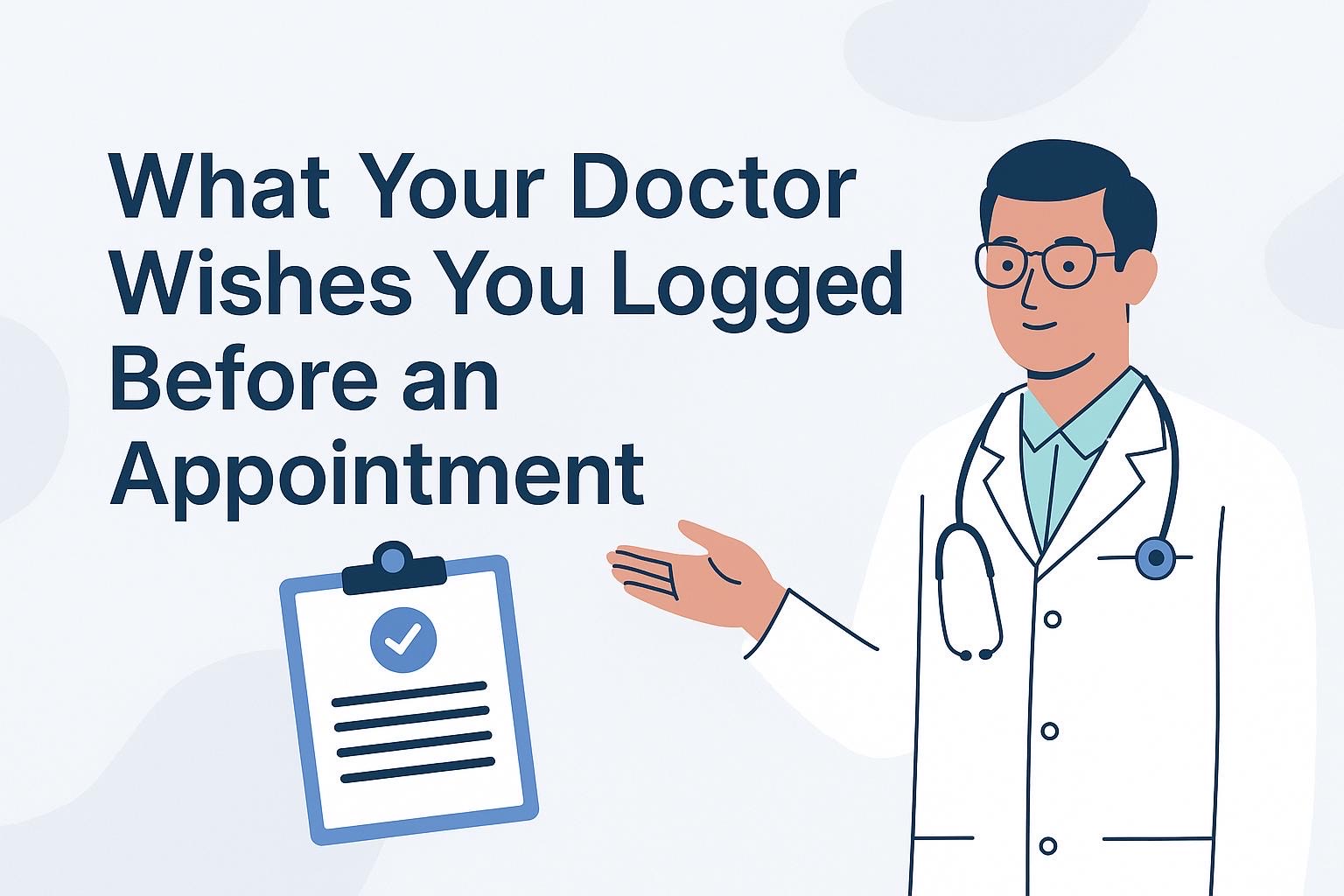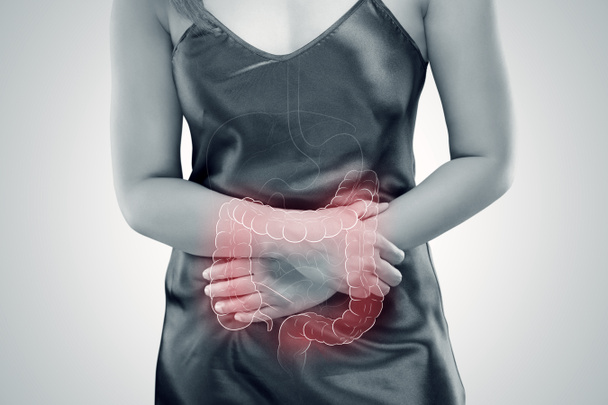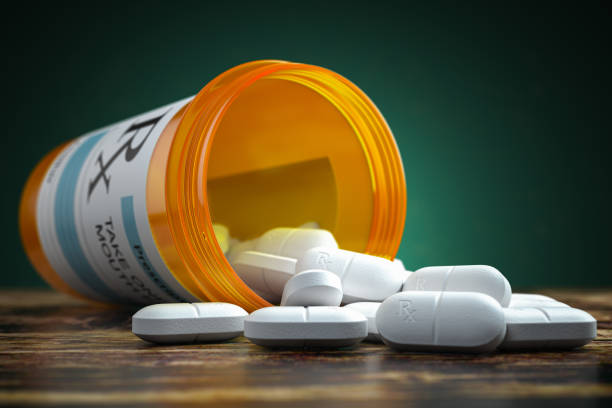What Your Doctor Wishes You Logged Before an Appointment

Stay Updated
Get the latest gut health tips and research delivered straight to your inbox.
By subscribing, you agree to receive our newsletter. You can unsubscribe at any time.
Maximizing Your Doctor's Appointment: What Your Gastroenterologist Wants You to Track
Living with IBD (Crohn’s disease, ulcerative colitis) or IBS can make doctor’s appointments overwhelming. You have a limited window to convey months of symptoms, flare patterns, and lifestyle details, which can be challenging to recall on the spot.
The key to receiving the best care lies in providing your doctor with clear, consistent data from your daily life. This guide will outline precisely what gastroenterologists and dietitians recommend tracking, empowering you to approach your appointments confidently and prepared for a more productive discussion.
1. Bowel Movements (Yes, Poop!)
- Frequency (how many times per day)
- Consistency (using the Bristol Stool Scale)
- Urgency (normal vs. “bathroom dash”)
- Blood or mucus presence
- Pain during bowel movement
Tracking these details helps your doctor assess the status of your condition, determine the need for medication adjustments, or identify emerging complications.
2. Flare Symptoms
- Abdominal pain (location + severity)
- Bloating, gas, or cramps
- Fatigue levels
- Nausea or vomiting
- Joint pain or skin issues
Consistently monitoring the frequency and intensity of these symptoms can reveal patterns and potential triggers.
3. Food & Drink
- Meals and snacks (basic foods + portion size)
- New foods you’re testing
- Caffeine, alcohol, or carbonated drinks
- Artificial sweeteners or high-FODMAP foods
Documenting your diet helps your doctor identify connections between your food intake and gut reactions, especially when exploring diets like low-FODMAP.
4. Stress & Lifestyle Factors
- Stress levels (high/medium/low)
- Sleep quality and hours per night
- Exercise or movement
- Major life events (travel, illness, changes in routine)
Recognizing the impact of stress and lifestyle changes on flare frequency is crucial. Logging these factors aids in understanding the mind-gut connection.
5. Medication & Supplement Tracking
- Prescription medications (time, dose, consistency)
- Over-the-counter drugs (e.g., antidiarrheals, pain relievers)
- Vitamins or probiotics
- Missed doses
Accurate medication logs assist doctors in determining treatment effectiveness and considering adjustments or alternative options.
6. Appointment-Ready Tips
- Summarize trends
- Bring visuals
- Keep it simple
Presenting summarized trends, visual aids, and concise notes at your appointment enhances the effectiveness of your tracking efforts.
7. How FlareCare Can Help
- Log bowel movements with the poop type selector
- Add food, stress, and symptom notes quickly
- View history in a calendar or log view
- Export/share logs with your doctor
Utilizing tools like FlareCare simplifies the tracking process, providing organized data for your healthcare provider.
Conclusion
By diligently tracking bowel movements, symptoms, diet, lifestyle factors, and medication, you equip your healthcare team with comprehensive insights into your health. This proactive approach empowers you to engage confidently and take control of your health journey during consultations with your GI or dietitian.
Download FlareCare today and start documenting the essential details that matter most to your care team.
Frequently Asked Questions
1. Do I need to track water intake for IBD or IBS?
Yes, hydration significantly influences digestion and stool consistency. Monitoring water intake helps your doctor assess if dehydration contributes to your symptoms.
2. How far back should I track before an appointment?
Bringing at least 2–4 weeks of data allows your doctor to identify patterns related to food, stress, or lifestyle, enhancing the effectiveness of your consultation.
3. What if I forget to log some days?
Partial data remains valuable, and consistency outweighs perfection. Simply resume tracking where you left off, as doctors understand the challenges of meticulous logging.
4. Should I bring a paper log or can I show my phone?
Both methods are acceptable, with digital summaries often preferred for their organization and visual aids, facilitating a more efficient review process.
5. Do doctors actually look at food logs?
Yes, especially when identifying flare triggers. Patterns in your diet and symptoms can provide valuable insights for your healthcare provider.
6. What if I notice a severe symptom while logging?
For severe symptoms like blood in stool or intense abdominal pain, promptly contact your doctor. While tracking is beneficial, urgent issues require immediate attention.
Stay Updated
Get the latest gut health tips and research delivered straight to your inbox.
By subscribing, you agree to receive our newsletter. You can unsubscribe at any time.
Related Posts

Managing Ulcerative Colitis: My Personal Journey with IBD Treatment Options and Surgery
I was diagnosed with Ulcerative Colitis (UC) in 2019, and my journey since then has been full of ups and downs as I’ve tried to manage this chronic illness. Over the past five years, I’ve explored various IBD treatment options and, unfortunately, had to undergo two surgeries. Finding the right treatment has been a constant struggle—every medication seemed to work for a few months before losing its effectiveness. Here’s a look at the IBD management strategies I’ve tried, and my personal experience with each one.

Living with Ulcerative Colitis: Treatment Options, Diet Tips, and Support for IBD
Treatment Options, Diet Tips, and Support for IBD.